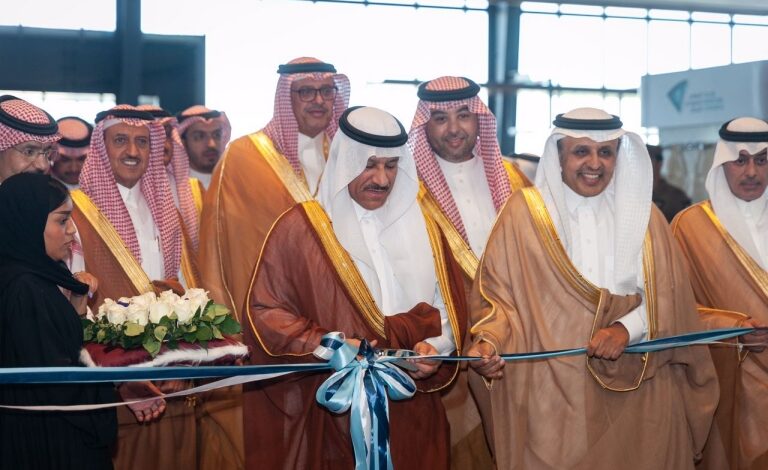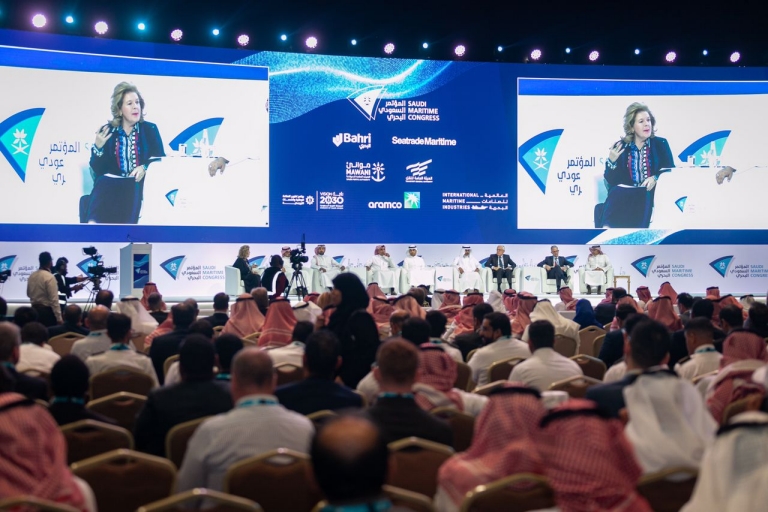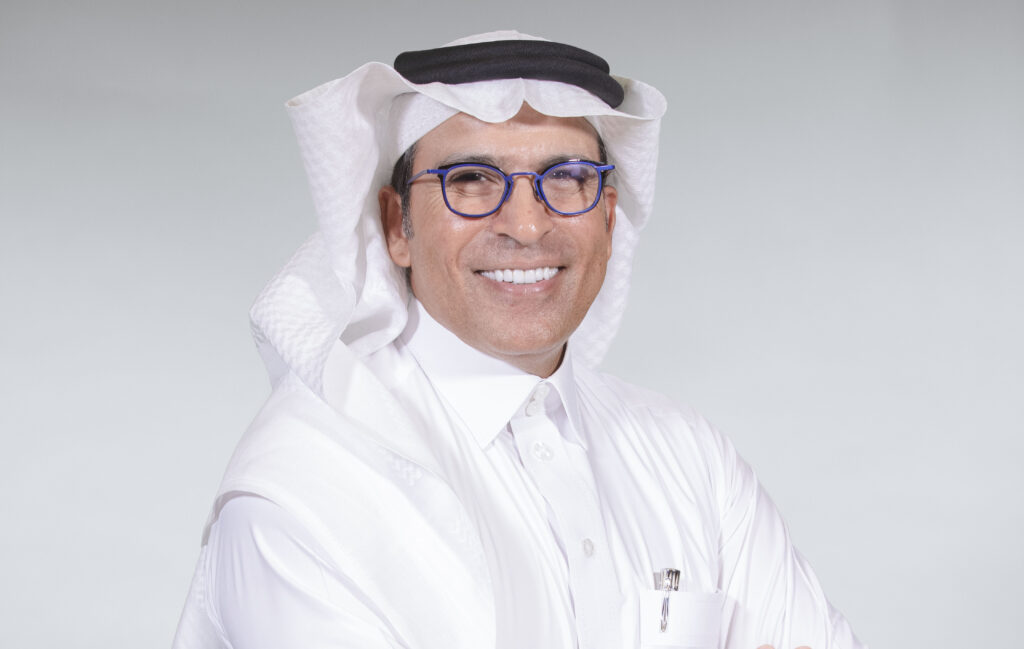Saudi Maritime Congress Opened with Immense Industry Support on World Maritime Day

The event witnessed a record number of attendees including industry heavy-weights and facilitated strategic partnerships that will contribute to the growing local and regional economies
The third edition of Saudi Maritime Congress, the Kingdom’s largest and most important global maritime event successfully opened doors yesterday at the Dhahran Expo in Dammam on World Maritime Day. The show was opened by, His Excellency Dr Rumaih Al Rumaih, Vice Minister of Transport & Logistic Services, His Excellency Omar Hariri, President, Saudi Ports Authority (Mawani) and Undersecretary of the Eastern Region Governorate Dr. Khalid bin Mohammed Al-Batal.

Staying true to its objective of connecting the industry, providing organisations with networking opportunities, and enabling business growth; the event held under the Patronage of His Royal Highness Prince Ahmed bin Fahd bin Salman, Deputy Governor of the Eastern Province, featured a Keynote session Vision 2030: An update on progress and opportunity for growth where distinguished panellists from organisations driving maritime business and policy within the Kingdom discussed the latest updates of the Vision 2030 plan, the opportunities in local and international maritime & logistics companies and the way forward.
One of the key highlights was the virtual opening remarks by Kitack Lim, Secretary General, International Maritime Organisation (IMO) who stated “I am delighted to have this opportunity to share my thoughts at the opening of this year’s Saudi Maritime Congress. You have a packed agenda and will discuss many key topics in maritime, not least the imperatives to tackle climate change and the challenges and opportunities of automation and digitalization.”
Lim added: “Shipping’s ability to transport large quantities of goods over vast distances in a cost-efficient manner is irrefutable, and the COVID pandemic and current geopolitical challenges have only served to increase the world’s awareness of its reliance on shipping and of seafarers’ invaluable role in global trade. The comprehensive regulatory framework developed by the International Maritime Organisation over more than seven decades is critical for shipping’s safety, security and its sustainability and for the global supply chains. As shipping evolves, IMO Member States, the industry itself and partners throughout the UN system and beyond work tirelessly to ensure this framework is constantly enhanced and strengthened.”

On a concluding note Lim said: “I would like to express my appreciation to the Kingdom of Saudi Arabia for the positive disposition to the aims and objectives of the IMO and for the constructive input to the work of the Organization. I would also like to highlight the generous support for capacity-building in developing countries such as through the IMO CARES (Coordinated Actions to Reduce Emissions from Shipping) initiative; funding to raise awareness of biofouling management and specifically to involve women across maritime industries and administrations; and thirdly, co-financing support for the GloLitter Project to tackle marine plastic litter.”
Chris Hayman said: “Saudi Arabia is a vital contributor to the growth of the global maritime industry. Its strategic location makes it an ideal trade hub as it connects the eastern and western parts of the globe. In line with Saudi Vision 2030, the Kingdom has rapidly progressed in terms of developing its trade and logistics infrastructure, making it one of the most advanced maritime hubs in the region and across the globe. We are optimistic about the fact that the Saudi Maritime Congress will enable the Kingdom to continue its progress and help it achieve its objectives for decades to come. Through a strategically planned agenda, and the participation of several leading maritime organisations, Saudi Maritime Congress has further paved the way for the country’s success”

Eng. Ahmed Alsubaey, CEO, Bahri said: “The Saudi Maritime Congress is a unique forum where the global industry will meet on a common platform to collaborate and discuss pressing issues and opportunities in the sector. During the 2022 edition of the event, the focus areas will include several objectives including digitalisation and decarbonisation, which are a priority. Through the advanced shipping assets and state-of-the-art oil terminals in the nation and Bahri’s very own sizeable fleet, we are determined to play a major role to strengthen the national economy.”
Alsubaey added, “Guided by KSA Vision 2030, we are committed to making the Kingdom the epicentre for international trade. To achieve this, currently our key focus areas include supporting KSA’s aspiration to reach the top 25 in the Logistics Performance Index and be one of the top 15 global economies.”
Enabling recovery and facilitating key partnerships

Throughout day one, panellists had insightful discussions on topics such as the Saudi Vision 2030, recovery strategies to tackle current challenges, maritime technologies, supply chain efficiency and the ports and logistics infrastructure in the region and more.
The event also enabled strategic signings for industry collaboration between Saudi Ports Authority (Mawani) and leading maritime companies in the region including Bahri, International Maritime Industries (IMI), Saudi Accreditation Centre, King Abdulaziz University, Tabadul, MBL, PCMS, Giza Arabia and Globe.Chris Morley, Group Director – Maritime Events, Informa Markets said: “As organisers, it’s always our privilege to bring the maritime community together and today has done that with considerable force. With the unwavering support of our partners and sponsors we have been able to deliver something truly exciting and undoubtedly supportive of the industry’s objectives not just here in Saudi Arabia but across the international market too. Innovative ideas were shared throughout today’s conference sessions and the appetite for growth and new solutions is remarkable. We are now looking forward to day two, where attendees can expect talks on the sector’s road to net-zero emissions, empowering the next generation of maritime professionals, and the use of big data and analytics in the industry.”



